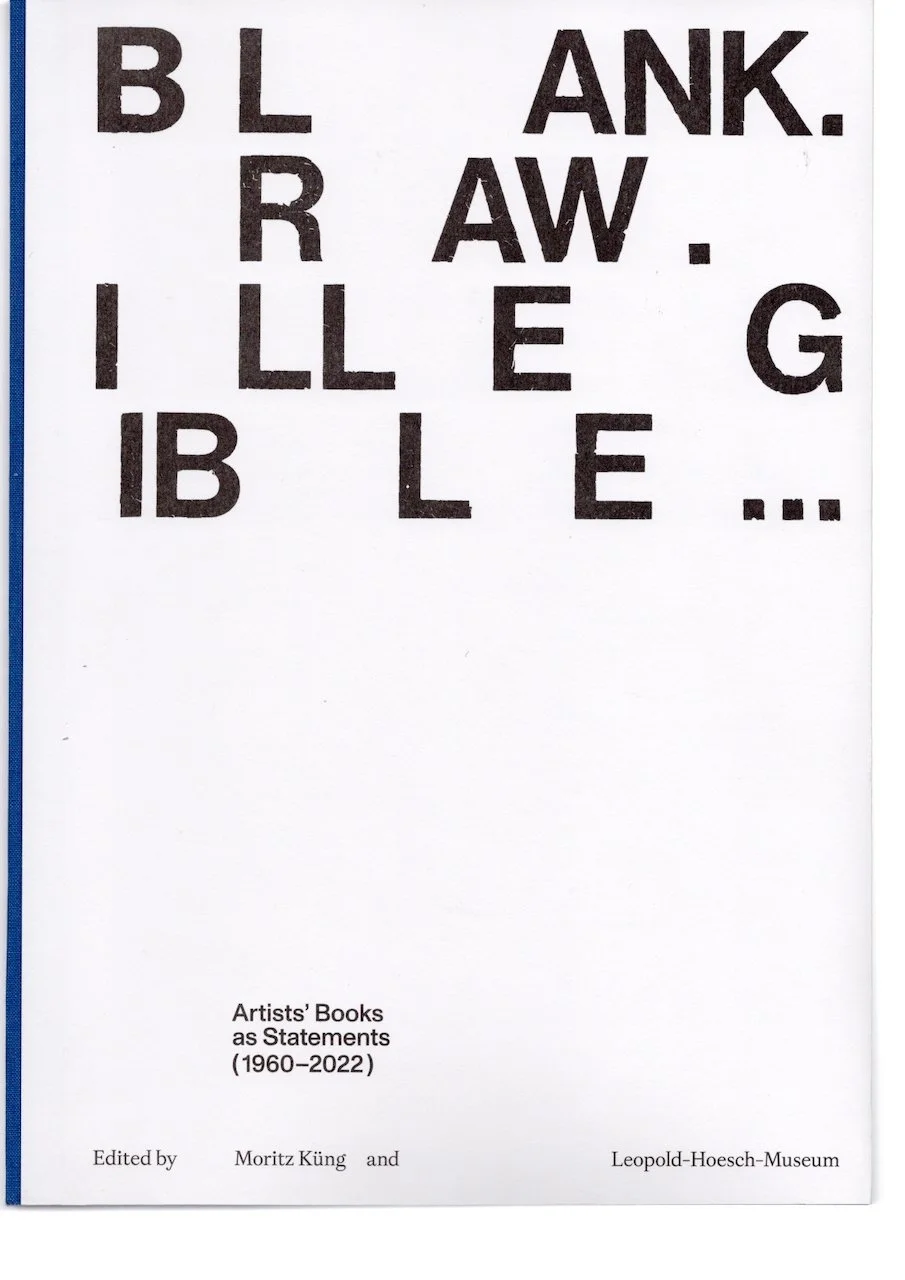lost for words…
Anne Lydiat. 9/9/99. ISBN 0 9535604 0 6
A blank book - hard backed with white linen cover without any printed information, instruction or knowledge. Sufficient blank pages to give ‘weight’. The weight and quality of the pages in keeping with a book that could be printed. The ISBN 0 9535604 0 6 blind embossed (not printed) into the hardback of the book.
A dust cover of white blotting paper with the title, lost for words … printed on the spine and front of the cover. The publisher’s name, Anne Lydiat, the date of publication 09.09.99 and the ISBN printed on the back of the cover.
Where could this blank book be placed? What would be its space – a space of nothingness in between other books? The blotting paper dust cover a metaphor for absorption, the soaking up of knowledge perhaps. What would be its contingent place? What knowledge might the book be placed in between? A space for thought, of silence between other knowledge… an interstice. Or would it be uncategorisable and therefore discarded or ignored as having 'nothing to say'?
The book has been placed in libraries nationally and internationally as an act of intervention, a donation, a gift. Instead of taking a book out, the blank book was put in, creating an interstitial space. This act was as a deliberate circumvention of the procedures of classification, categorisation etc. A refusal to be bound by the rules. Where possible the blank book was placed in the Philosophy Section, photographed as documentation and left on the shelf as an officially unacknowledged presence.
‘lost for words…’ is installed in libraries in the UK, China, Japan, Russia, the Netherlands, Belgium, Norway, Sweden, Germany, France, Catalonia, Czekia, Slovakia and America.
What can one say when one has promised to say nothing...
Inside the front fly leaf it reads:
“About this book I had promised myself to say nothing…”
and continues on the back inside flap
“…There are works that entrust themselves to our discretion. We wrong them by pointing them out; or, rather, we pull them out of their proper space, which is the space of reserve and friendship. But there comes a moment when the kind of austerity that lies at the core of every important book, whether the most tender or the most painful, delivers it from us and cuts the ties. Henceforth the book no longer belongs - and that is its consecration as a book.”
See below some of the many reviews of lost for words…





